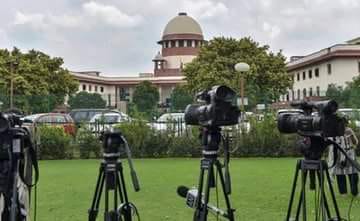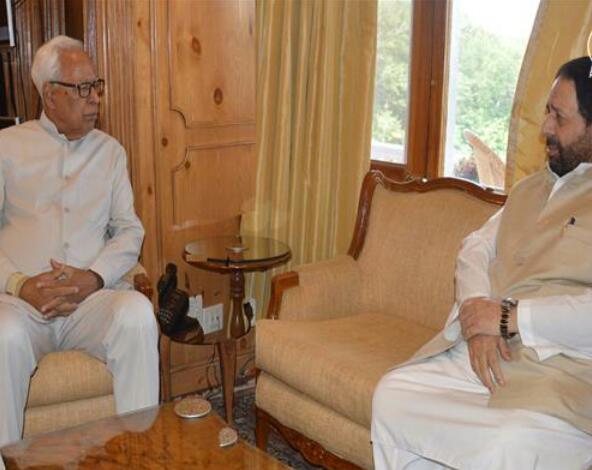Police "Revolt" In Kashmir If Top Court Scraps Article 35A, Agencies Warn
`Police "Revolt" In Kashmir If Top Court Scraps Article 35A, Agencies Warn
The will hear a petition challenging the constitutional validity of the presidential order of 1954, which defines "permanent residents of Jammu and Kashmir", and bars non-locals from buying and owning land in the state
Srinagar: Intelligence agencies have warned that there could be a "revolt" in the police ranks and massive unrest in Jammu and Kashmir if the Supreme Court passes an "adverse" order on Article 35A of the Constitution on Monday, sources have told NDTV.
The top court will hear a petition challenging the constitutional validity of the presidential order of 1954, which defines "permanent residents of Jammu and Kashmir", and bars non-locals from buying and owning land in the state.
The Jammu and Kashmir police are on the forefront in the fight against terrorists, pro-separatists protests and stone-throwing in the valley. More than 1,600 police personnel have been killed fighting terrorists since 1990. But on the issue, top officers are worried about the fallout in case the Supreme Court decides to strike down Article 35A.
A non-government organisation or NGO, backed by right wing groups, has challenged Article 35A, on grounds that it violates fundamental rights of citizens of India including the right to own property and the right to reside and settle in any part of the country.
The petitioner contended that the Constitution of India can be amended only by parliament, and Article 35A was outside the jurisdiction of President of India. The provision in the Constitution was applied to supersede Jammu and Kashmir's State Subject Law enacted by Maharaja Hari Singh in 1927.
Intelligence agencies have written to the state government, warning a revolt in the police ranks if Article 35A is tinkered with, sources said. State government employees, trade unions, business associations, civil society groups and lawyers have threatened to go on protest if the special constitutional position of the state was compromised. For the last one week, there have been series of protests as clamour is growing to retain Article 35A.
Sensing trouble, the state government headed by Governor NN Vohra has requested the Supreme Court to delay the case till local body and panchayat elections due in October. Last year, the Supreme Court deferred hearing of the case after the centre said that the government has appointed an interlocutor to hold negotiations with various stakeholders in the state.
Shesh Paul Vaid, Director General of Police, admitted that the local police had a view about this emotive issue. He hoped that the state government's request for delaying the hearing would be accepted by the court. The officer exuded confidence that there would be no revolt in the police, as it was the duty that came first for the police force.
"Police officers have a view. I am a resident of Jammu and Kashmir and I am also police officer; I have my own views. But what's my duty, I will always do first," Mr Vaid told NDTV
The state government has requested for deferment and I am sure something positive will come," he added.
Mr Vaid said the state police were working under most tumultuous situation and had been a very disciplined force. "I don't see any possibility [of revolt]. The order of the Supreme Court is respected by all parties and everyone in the country," he said.
The fear of altering special status of Jammu and Kashmir is also bringing together separatist groups and mainstream political parties to fight for the common cause. While National Conference and the PDP have warned massive protests, separatist groups have called for a two-day shutdown on Sunday and Monday.
For the first time, the police are allowing protests and appealed to people for peace. "I am sure people will express their views peacefully and will not take to violence. I am hopeful that things will pass off peacefully," said Mr Vaid.
Given that the separatists are also fighting to safeguard a provision of Indian constitution, the police chief said it was "a good change". "It's a very good change. They are fighting for some provision of the Indian constitution," said Mr Vaid. (NDTV)```




Comments